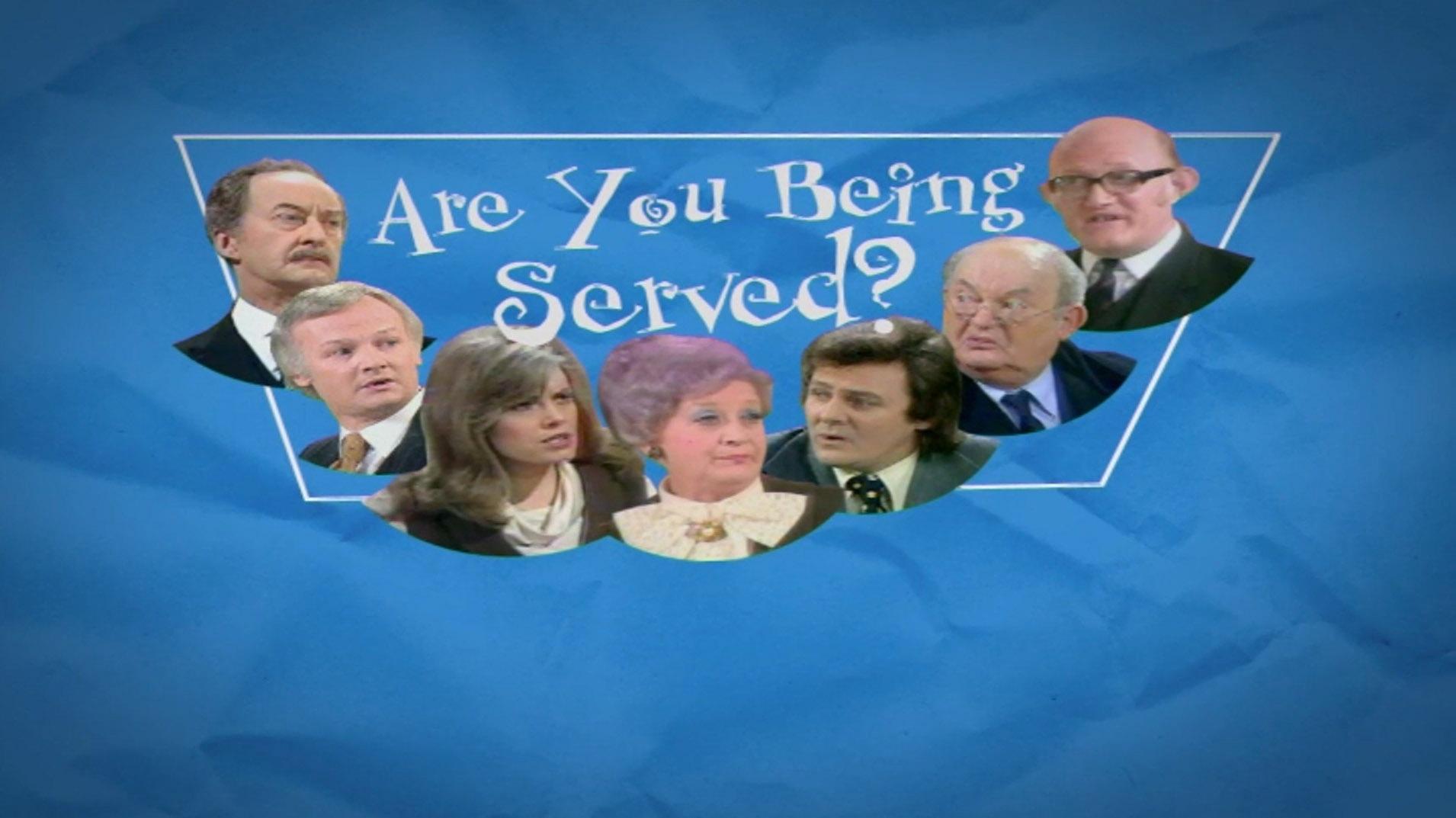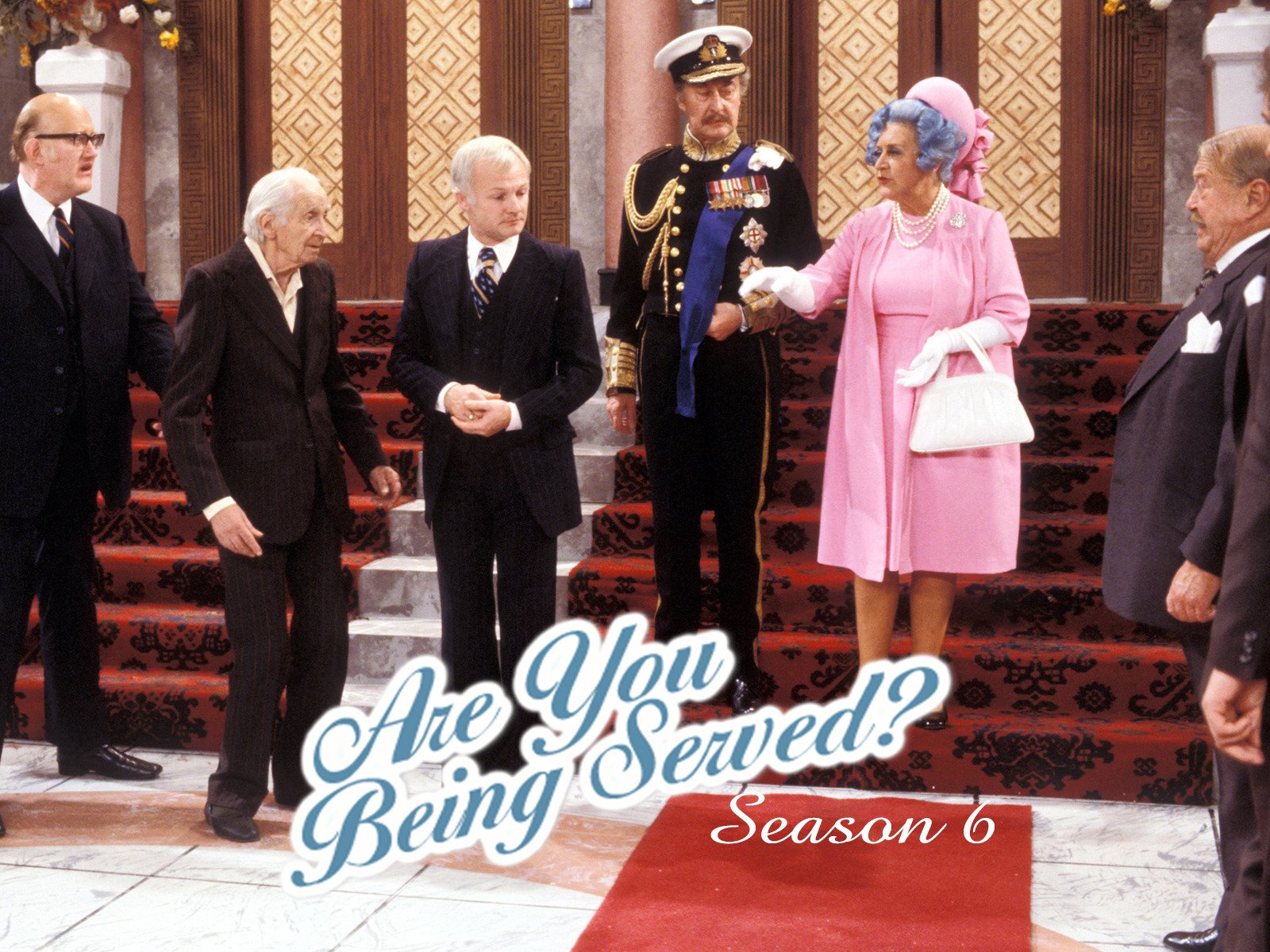Are You Being Served?: A Twenty first-Century Take a look at a Timeless Sitcom
Associated Articles: Are You Being Served?: A Twenty first-Century Take a look at a Timeless Sitcom
Introduction
With nice pleasure, we’ll discover the intriguing subject associated to Are You Being Served?: A Twenty first-Century Take a look at a Timeless Sitcom. Let’s weave attention-grabbing data and provide recent views to the readers.
Desk of Content material
Are You Being Served?: A Twenty first-Century Take a look at a Timeless Sitcom

"Are You Being Served?", the British sitcom that graced our screens from 1972 to 1985, stays a cultural touchstone, a testomony to the enduring energy of well-crafted comedy. Greater than only a humorous present, it presents an enchanting snapshot of Seventies Britain, exploring themes of gender roles, social class, and office dynamics with a mix of slapstick and refined satire that continues to resonate at this time. Whereas its humor would possibly really feel dated at occasions, the core conflicts and character archetypes stay surprisingly related, prompting us to ask: Are we nonetheless being served – differently, maybe – by the enduring legacy of this iconic sequence?
The present’s setting, the fictional Grace Brothers division retailer, is a microcosm of British society. The inflexible hierarchy, the conflict of personalities, and the fixed wrestle for energy mirror the social constructions of the period. The higher echelons, represented by the aloof Mr. Grace (performed with icy precision by Arthur English), epitomize the indifferent authority of the institution. Under him, a colourful forged of characters navigates the complexities of their roles, their ambitions, and their private lives, typically colliding in hilarious methods.
One of many present’s most enduring facets is its exploration of gender roles. The battle of the sexes, performed out between the flamboyant Mr. Humphries (John Inman) and the perpetually exasperated Mrs. Slocombe (Mollie Sugden), is a comedic masterpiece. Mr. Humphries’s camp demeanor and his fixed flirtations, typically met with Mrs. Slocombe’s equally flamboyant responses, supplied a subversive commentary on societal expectations of masculinity and femininity. Whereas their interactions could seem overtly stereotypical by at this time’s requirements, they spotlight the absurdity of inflexible gender definitions and the inherent humor in defying them. Their relationship, although typically fraught with battle, additionally suggests a grudging respect and even a deep-seated affection, showcasing a posh dynamic that goes past easy antagonism.
The present additionally cleverly makes use of humor to show the category system prevalent in Seventies Britain. The interactions between the totally different departments, the various ranges of social mobility throughout the retailer, and the refined class distinctions between the characters create a wealthy tapestry of social commentary. The aspirational Miss Brahms (Wendy Richard), continually vying for promotion and a greater life, represents the ambition of many working-class people striving for upward mobility. Her interactions with the extra established characters reveal the limitations and prejudices she encounters on her journey. This class wrestle, although offered by comedic lenses, offers a poignant reflection on the social inequalities of the time.
Past gender and sophistication, "Are You Being Served?" additionally tackles themes of office dynamics and the absurdities of company life. The fixed energy struggles between the workers, the petty rivalries, and the chaotic nature of the division retailer setting resonate even with trendy viewers. The incompetence of some characters, the relentless pursuit of self-interest by others, and the general inefficiency of the system create a comedic portrayal of office dysfunction that continues to be surprisingly related. The present’s enduring attraction lies partly in its means to focus on the common truths of office life, whatever the particular historic context.
The present’s success additionally hinges on its ensemble forged. Every character is meticulously crafted, with distinct personalities, quirks, and recurring catchphrases. The interaction between these characters fuels the comedy, making a dynamic and unpredictable narrative. The timing and supply of the actors are impeccable, enhancing the comedic impact and making certain that even probably the most refined nuances of the humor are usually not misplaced. The chemistry between the actors is palpable, contributing considerably to the present’s total success and lasting attraction. Their performances transcend the script, imbuing the characters with a depth and complexity that elevates the present past easy slapstick.
Nevertheless, the present’s age is simple. Among the humor depends on stereotypes and tropes that are actually thought of offensive or outdated. The portrayal of sure characters, significantly these from minority teams, could be seen as insensitive by trendy requirements. This does not essentially diminish the present’s historic significance or comedic worth, but it surely does require a vital and nuanced viewing expertise. It is essential to acknowledge the social context wherein the present was produced and to grasp that the humor displays the attitudes and prejudices of the time.
In conclusion, "Are You Being Served?" is greater than only a nostalgic journey down reminiscence lane. It is a complicated and multifaceted sitcom that provides a satirical and infrequently hilarious commentary on the social, political, and financial panorama of Seventies Britain. Whereas its humor could not at all times age gracefully, the present’s exploration of gender roles, class distinctions, and office dynamics continues to resonate with audiences at this time. The characters, with their quirks and eccentricities, stay memorable and iconic, reminding us that the human situation, with all its complexities and contradictions, stays a continuing supply of each frustration and amusement. Whereas the particular context could have modified, the basic questions on social interplay, energy dynamics, and the seek for that means within the office proceed to be related, making "Are You Being Served?" a timeless, if barely problematic, piece of tv historical past. The query "Are you being served?" stays pertinent, prompting us to contemplate not solely the service we obtain but in addition the methods wherein our personal societal constructions and interactions mirror the comedic chaos of Grace Brothers. The present’s enduring legacy lies not solely in its humor however in its means to impress thought and dialogue in regards to the enduring themes it explores.







Closure
Thus, we hope this text has supplied priceless insights into Are You Being Served?: A Twenty first-Century Take a look at a Timeless Sitcom. We recognize your consideration to our article. See you in our subsequent article!